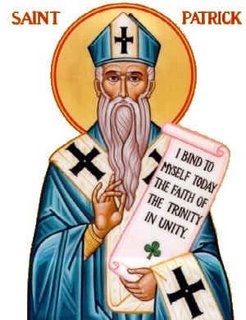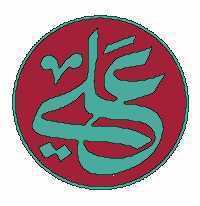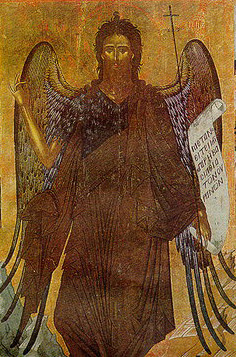St. Patrick

St. Patrick :
Profile
Born at Kilpatrick, near Dumbarton, in Scotland, in the year 387; died at Saul, Downpatrick, Ireland, March 17, 493. His parents were Calphurnius and Conchessa. The former belonged to a Roman family of high rank and held the office of decurio in Gaul or Britain. Conchessa was a relative of the great patron of Gaul, St. Martin of Tours. Kilpatrick still has many memorials of Saint Patrick, and frequent pilgrimages continued far into the Middle Ages to perpetuate there the fame of his sanctity and miracles. Kidnapped from the Scottish mainland around the age of 16, and shipped to Ireland as a slave. He was sent to the mountains as a shepherd, where he spent his time in prayer. After six years of this life, he received a dream in which he was commanded to return to Britain; seeing it as a sign, he escaped. Studied in continental monasteries. Priest. Bishop. Sent by Pope Saint Celestine to evangelize England, then Ireland. In 33 years, he effectively converted the whole of Ireland. In the Middle Ages Ireland became known as the Land of Saints, and during the Dark Ages its monasteries were the great repositories of learning in Europe - all consequences of St. Patrick's ministry.
The prayer, popularly known as "St. Patrick's Breast-Plate," is supposed to have been composed by him in preparation for this victory over Paganism. The following is a literal translation from the old Irish text:
I bind to myself today
The strong virtue of the Invocation of the Trinity:
I believe the Trinity in the Unity-The Creator of the Universe.
I bind to myself today
The virtue of the Incarnation of Christ with His Baptism,
The virtue of His crucifixion with His burial,
The virtue of His Resurrection with His Ascension,
The virtue of His coming on the Judgement Day.
I bind to myself today
The virtue of the love of seraphim,
In the obedience of angels,
In the hope of resurrection unto reward,
In prayers of Patriarchs,
In predictions of Prophets,
In preaching of Apostles,
In faith of Confessors,
In purity of holy Virgins,
In deeds of righteous men.
I bind to myself today
The power of Heaven,
The light of the sun,
The brightness of the moon,
The splendour of fire,
The flashing of lightning,
The swiftness of wind,
The depth of sea,
The stability of earth,
The compactness of rocks.
I bind to myself today
God's Power to guide me,
God's Might to uphold me,
God's Wisdom to teach me,
God's Eye to watch over me,
God's Ear to hear me,
God's Word to give me speech,
God's Hand to guide me,
God's Way to lie before me,
God's Shield to shelter me,
God's Host to secure me,
Against the snares of demons,
Against the seductions of vices,
Against the lusts of nature,
Against everyone who meditates injury to me,
Whether far or near,
Whether few or with many.
I invoke today all these virtues
Against every hostile merciless power
Which may assail my body and my soul,
Against the incantations of false prophets,
Against the black laws of heathenism,
Against the false laws of heresy,
Against the deceits of idolatry,
Against the spells of women, and smiths, and druids,
Against every knowledge that binds the soul of man.
Christ, protect me today
Against every poison, against burning,
Against drowning, against death-wound,
That I may receive abundant reward.
Christ with me, Christ before me,
Christ behind me, Christ within me,
Christ beneath me, Christ above me,
Christ at my right, Christ at my left,
Christ in the fort,Christ in the chariot seat,Christ in the poop [deck],
Christ in the heart of everyone who thinks of me,
Christ in the mouth of everyone who speaks to me,
Christ in every eye that sees me,
Christ in every ear that hears me.
I bind to myself today
The strong virtue of an invocation of the Trinity,
I believe the Trinity in the Unity - The Creator of the Universe.
Happy St. Patrick's Day !!!
(and happy one-year, web-log anniversary to my Grenadan friend! )
(http://planetgrenada.blogspot.com/)
"This is the first post for Planet Grenada and my first attempt at 'blogging.' To be honest, I didn't spend a long time trying to find 'just' the right name for this blog but I think this will do nicely. Grenada was last stronghold of the Muslims in Spain when the Christians took back the country in the Reconquista. Grenada is also the name of the Caribbean country whose temporary Marxist regime was toppled by the Reagan Administration in the 1980's. (I can identify with both uses in interesting ways) Calling it *Planet* Grenada seems fitting to me since I've been thinking about and intrigued by the Afro-futurism movement recently and its ideas seem to resonate with some of my recent thoughts and activities. So for the moment, the name seems to evoke all the right things. It also seems a bit fitting to get this thing going in the early hours of St. Patrick's Day. At least, according to one version of the St. Patrick's day legend, the usual story of St. Patrick driving the snakes out of Ireland was actually a kind of bait-and-switch and the snakes are in reality a stand in for the Moors. Anyway, this is enough introduction for now. More to come later.... "
((Many more postings have followed in the first year of this creative web-log, which was one of the first sites to inspire me to create the Rasa'il Khalil al-Wafa'. Thanks Abdul-Halim! Keep on blogging in the free-world! ))

































